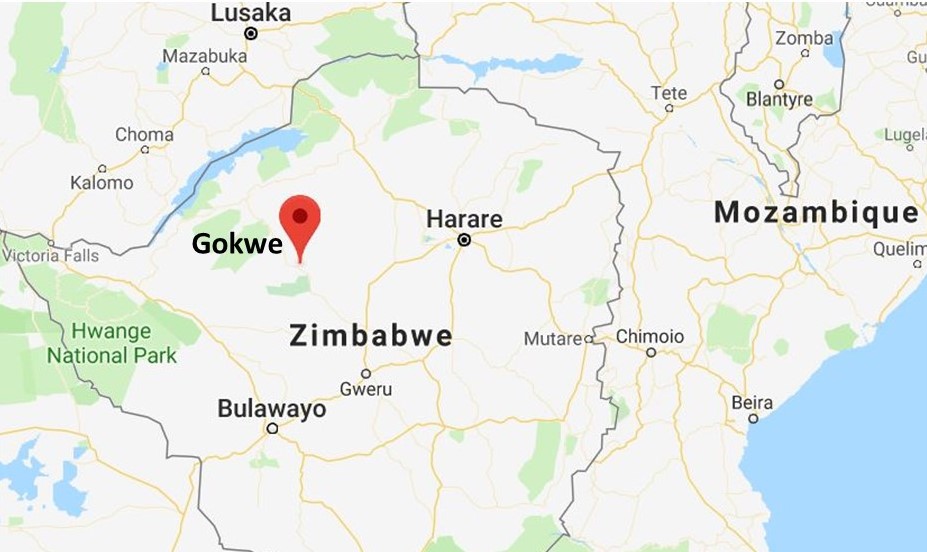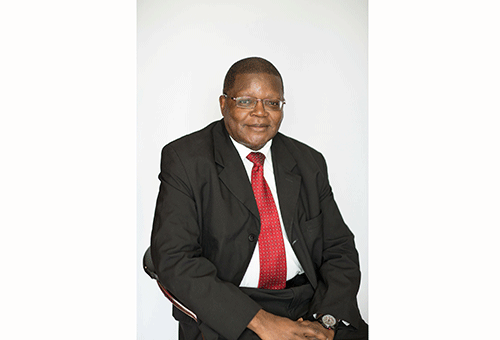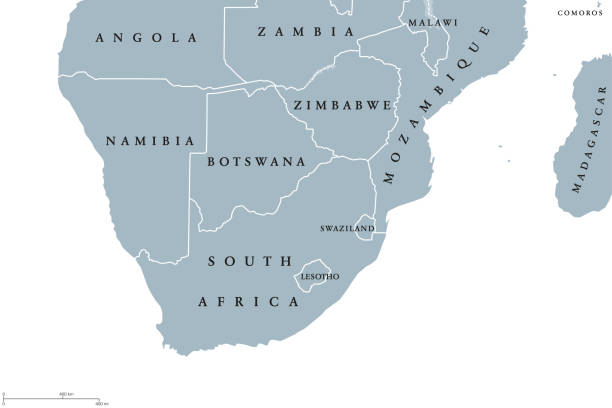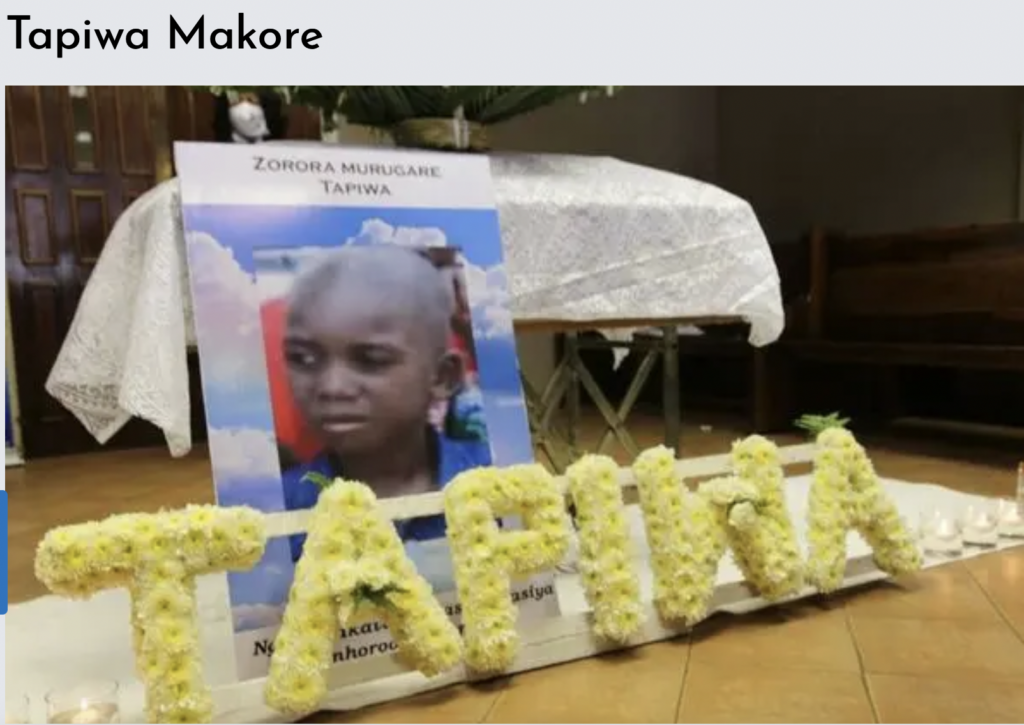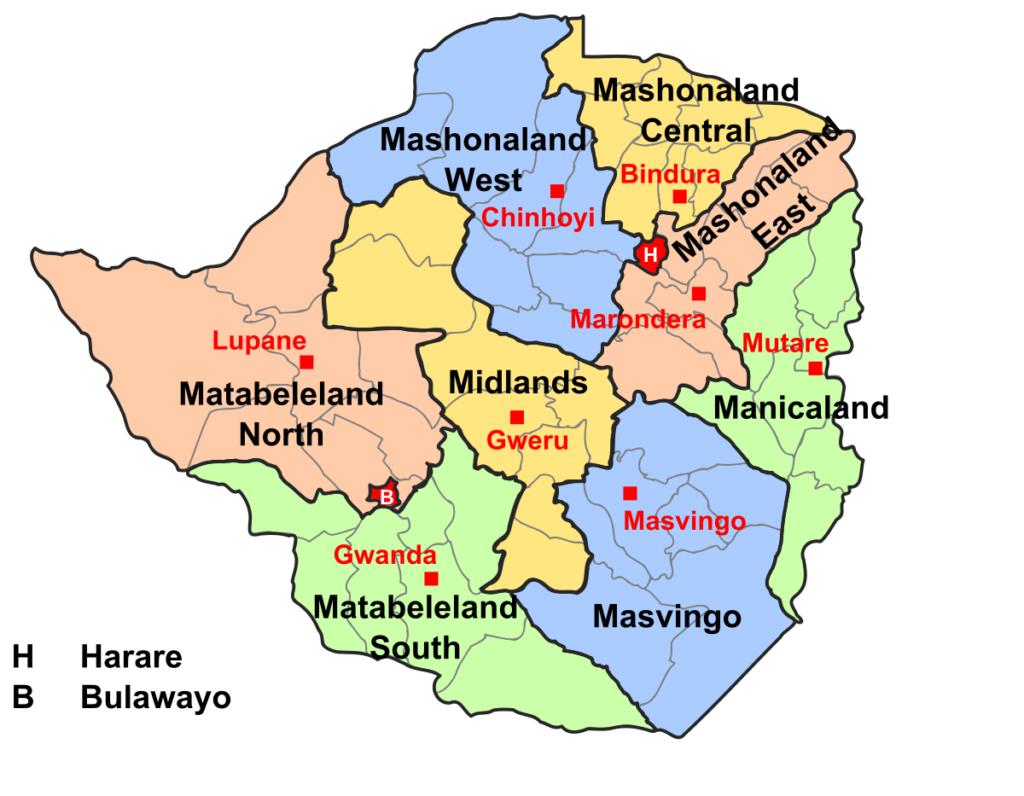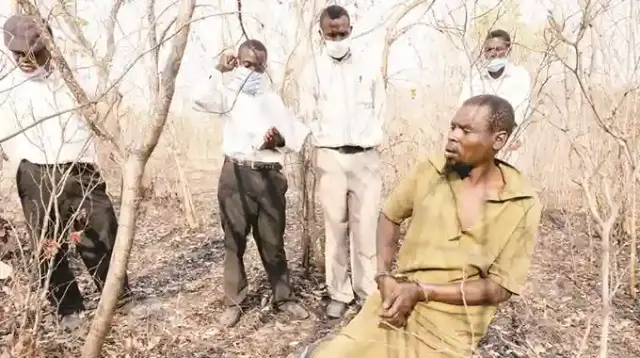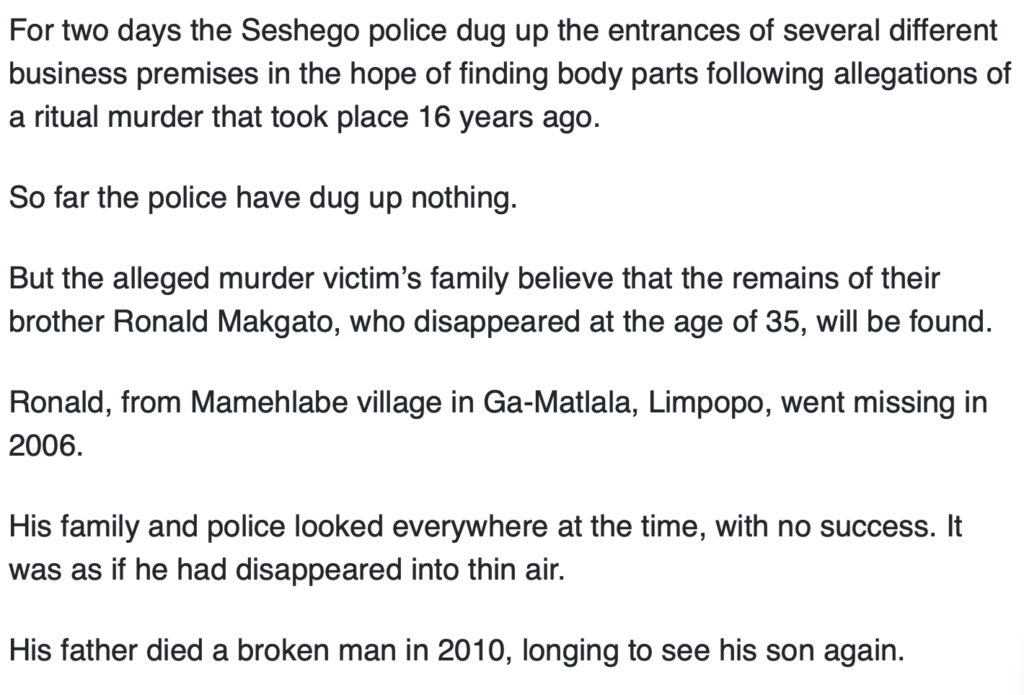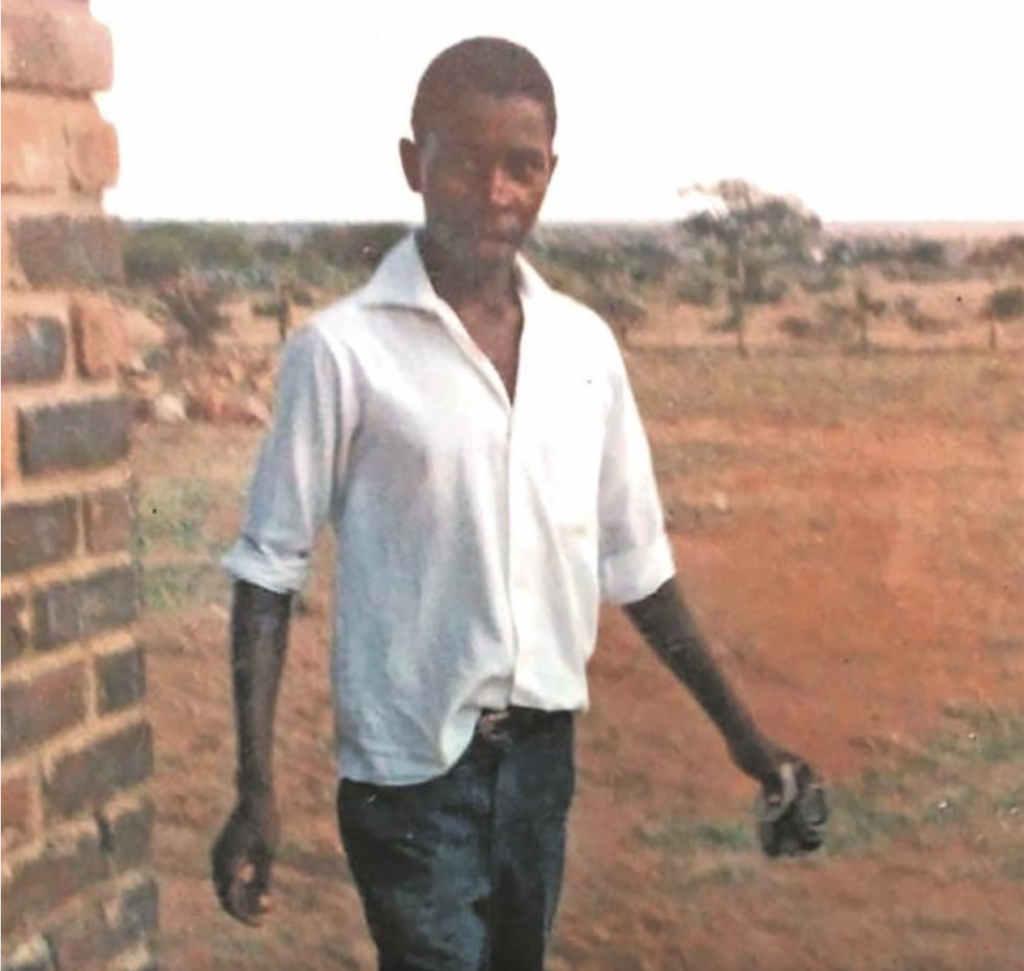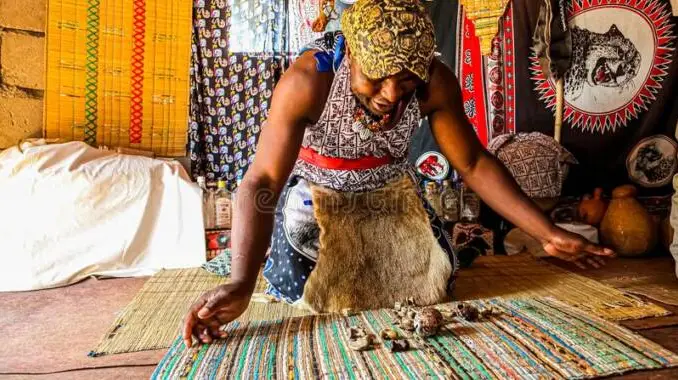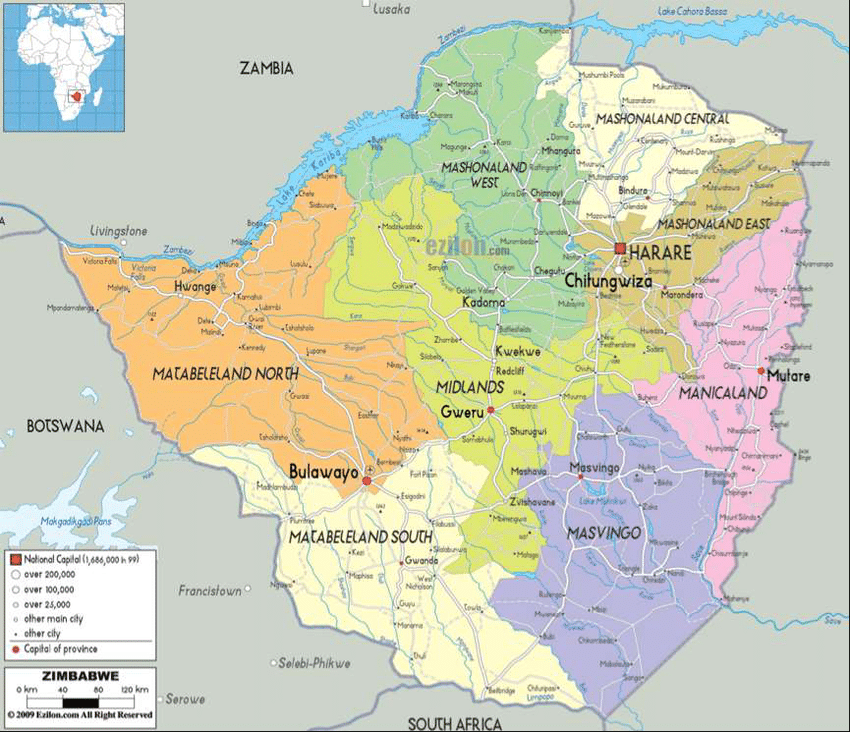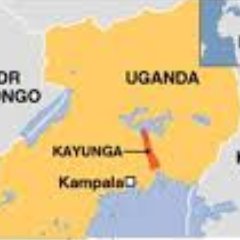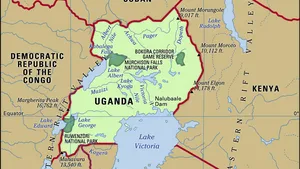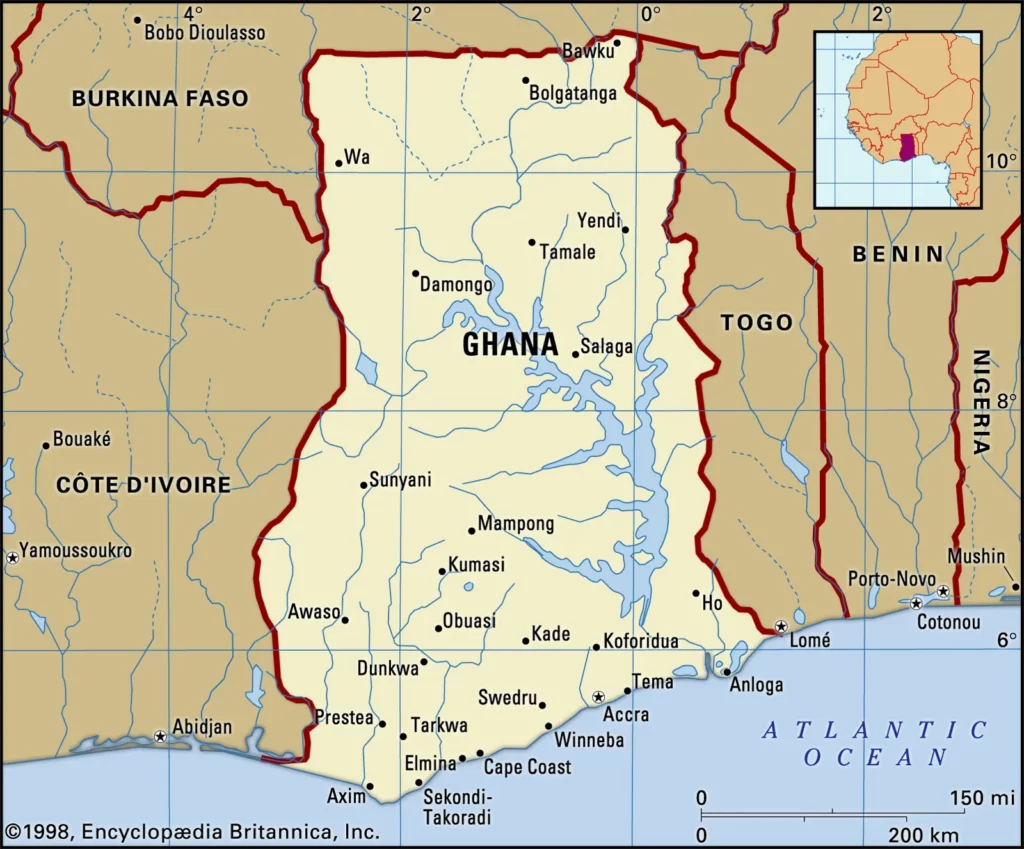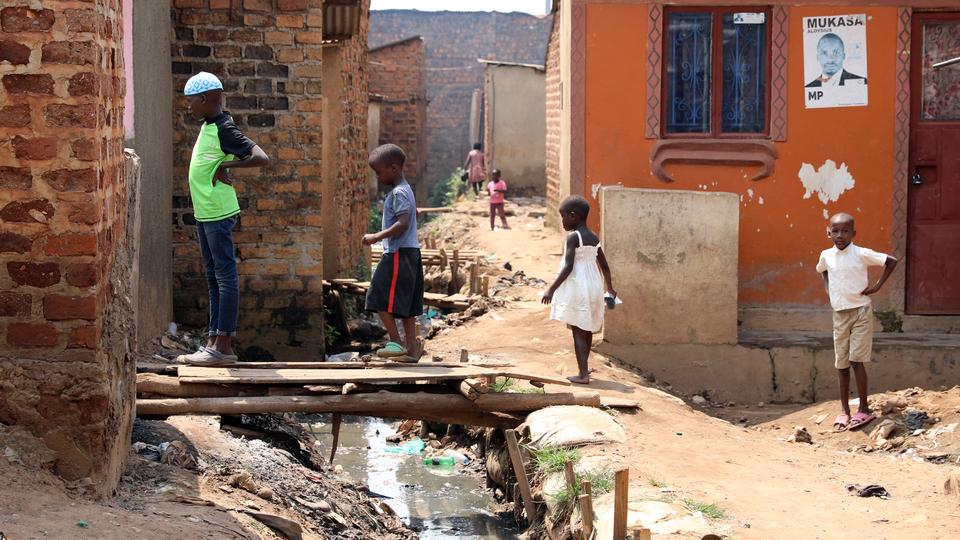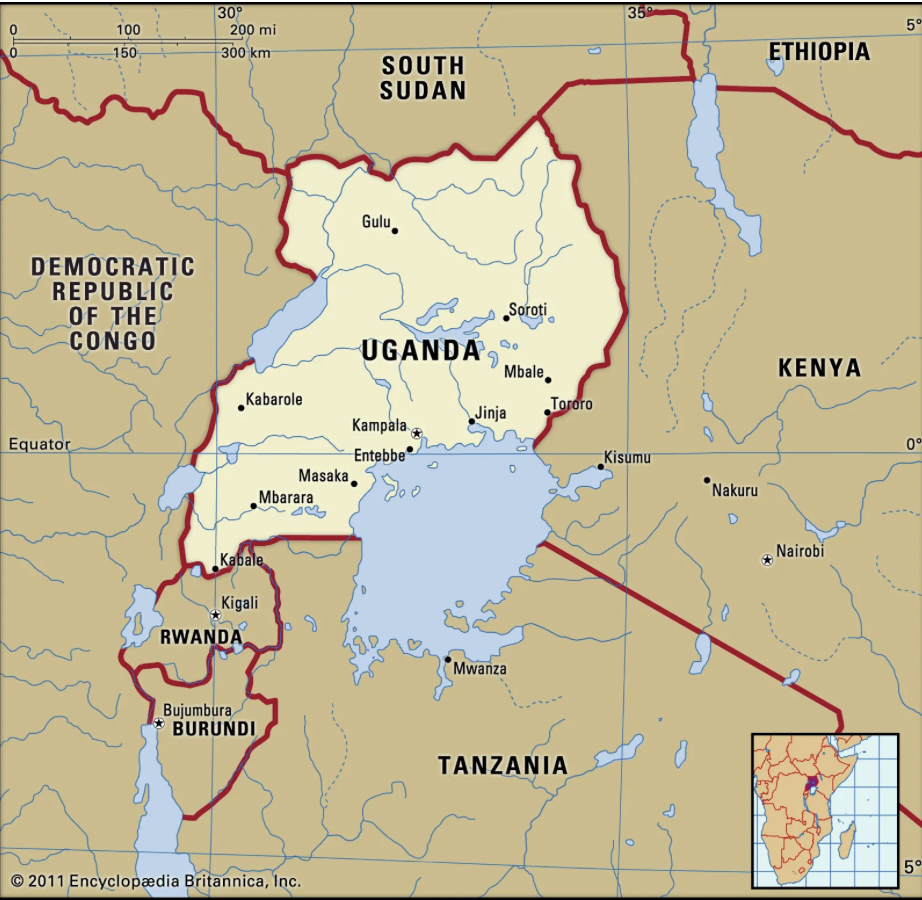For the past few days I’ve been reporting on ritual murders (‘mui murders’) in the kingdom of Eswatini (formerly known as Swaziland). Muti murders are not only known in this tiny kingdom where King Mswati III rules as an absolute monarch. Muti murders are known throughout Southern Africa, It’s a sad reality to write down. Zimabwe’s most notorious murder case which shocked this nation when it occurred, in 2020, and also in following years when increasingly more details became known about the gruesome murder of an innocent 7-year old boy by his uncle and namesake, Tapiwa Makore, is still fresh.
Only very recently the murderers of Tapiwa Makore were sentenced to death, yet another ritual murder became known. We will never know how many ‘muti murders’ are committed in Zimbabwe and elsewhere.
Thomas Muzenda, a 38-years old artisinal miner from Gokwe, Zimbabwe, reportedly killed his one-year old daughter to booster his mining business. He butchered her and chopped up the body to get parts for muti purposes. He then reported her missing to cover up his crime.
Warning: the following may upset readers because of its graphic contents.
(FVDK).
Man killed daughter, 1, to boost artisanal mining business: police
‘The suspect confessed to the police that he killed his daughter with a knife for ritual purposes to allegedly boost his mining activities.

Published: August 5, 2023
By: ZimLife
….an artisanal miner also confessed to killing his 1-year-old daughter in Gokwe to boost his artisanal mining business….
Meanwhile (…), in another incident (…), an artisanal miner has admitted to killing his daughter who is aged 1 year, 2 months.
Said the police, “On 2 August 2023, police in Gokwe arrested an artisanal miner, Thomas Muzenda, 38, of Village 17 Mupukuta, Chireya Gokwe North, in connection with the callous murder of his daughter, Nenyasha Muzenda, 1 year 2 months, who had been reported missing.
“The suspect confessed to the police that he killed his daughter with a knife for ritual purposes to allegedly boost his mining activities after approaching a traditional healer only identified as Dhumba.
“Police have since recovered the remains of the victim from a disused well at Zenda Mining area, Gokwe North.”
Source: Man killed daughter, 1, to boost artisanal mining business: police
More details:
Man kills daughter (1), harvests body parts for rituals

Published: August 6, 2023
By: Bulawayo 24 News
In a spine chilling ritual murder, a 38-year-old man killed his daughter (1) and chopped up the body to get parts for muti purposes.
Thomas Muzenda, an artisinal miner (umakorokoza) from Gokwe, reportedly butchered Nenyasha Muzenda with a knife, then reported her missing to cover up the grisly offence.
Muzenda was arrested on 2 August 2023.
Without giving much detail, police took to twitter and said, ‘’ On 02/08/23, Police in Gokwe arrested an artisanal miner, Thomas Muzenda (38) of Village 17 Mupukuta, Chireya Gokwe North, in connection with the callous murder of his daughter, Nenyasha Muzenda (1 year 2 months), who had been reported missing.
“The suspect confessed to the police that he killed his daughter with a knife for ritual purposes to allegedly boost his mining activities after approaching a traditional healer only identified as Dhumba. Police have since recovered the remains of the victim from a disused well at Zenda Mining area, Gokwe North,” read the tweet.
Source: Man kills daughter (1), harvests body parts for rituals
More reports on the same muti murder:
Man Kills Daughter(1) To Boost Mining Business
Published: August 7, 2023
By: ZimEye News
A horrifying incident has unfolded in Gokwe, Zimbabwe, as an artisanal miner, Thomas Muzenda (38), has been apprehended by the police for the brutal murder of his one-year-old daughter, Nenyasha Muzenda.
Startling details emerged when Muzenda confessed to the heinous act, revealing that he took the innocent life in a ritualistic act aimed at bolstering his mining endeavours. The sh0cking incident has sent sh0ckwaves through the community, highlighting the desperate lengths some individuals may go to in the pursuit of wealth and success.
The tragic events unfolded when Nenyasha Muzenda was reported missing, prompting a police investigation in Gokwe, a region known for its artisanal mining activities. During questioning, Thomas Muzenda sh0ckingly admitted to authorities that he had murdered his own daughter as part of a ritual intended to enhance his mining business. Allegedly, Muzenda had sought the assistance of a traditional healer named Dhumba, who advised him that such a gruesome act would bring prosperity and success to his mining activities.
Following Muzenda’s confession, the police conducted a search and ultimately discovered the remains of the young victim in a disused well located at the Zenda mining area in Gokwe North. The gruesome find further confirmed the harrowing nature of the crime and left the community in a state of sh0ck and disbelief.
Meanwhile, the police are urging anyone with information regarding the murder of Clemence Mwale (30) to come forward and assist with the investigation. Mwale was fatally attacked by unknown assailants on August 3 in Dzivaresekwa, and the authorities are seeking any leads that could shed light on the circumstances surrounding this tragic event.
The arrest of Thomas Muzenda has sent sh0ckwaves throughout Zimbabwe, prompting a broader conversation about the lengths some individuals may go to in their pursuit of success. The incident serves as a stark reminder of the importance of ethical practices and the need to safeguard vulnerable members of society. – My Zimbabwe News
Source: Man Kills Daughter(1) To Boost Mining Business
AND MORE:
Dad kills daughter to boost mining business
Published: August 7, 2023
By: NewsdzeZimbabwe
Artisanal miner killed daughter for ritual purposes
Published: August 7, 2023
By: The Herald, Zimbabwe
